You Can't See Into Our Hearts
We have bought the lotus flowers, the oil, the wicks and the incenses. We start barefooted to the main temple of Saman Devio, protecting God of our province. It is a Buddhist temple, of course, and there is a sanctuary for the Buddha, however, the main hall is Saman Devio’s and the temple is named after the God. Big religions have their own flavors everywhere.
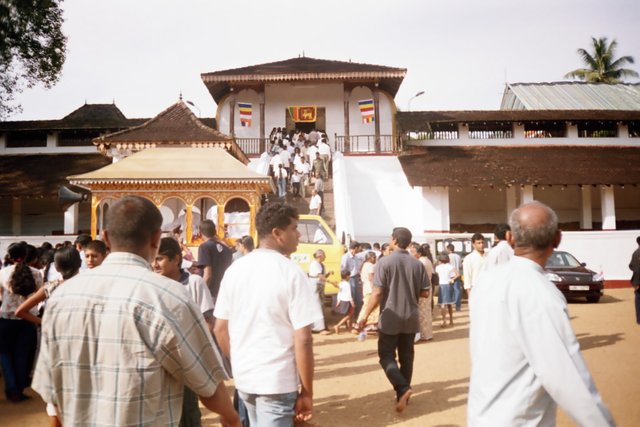
We have washed the flowers, have broken the stems of the lotuses off for only the blossom should get onto the altar, and now are heading to Lord Buddha. We quietly queue in order to put our flowers on the altar, carefully, almost one by one, as everybody does, to get perfect little compositions in the stream of white flowers, with yellow, purple and rose rising up here and then.
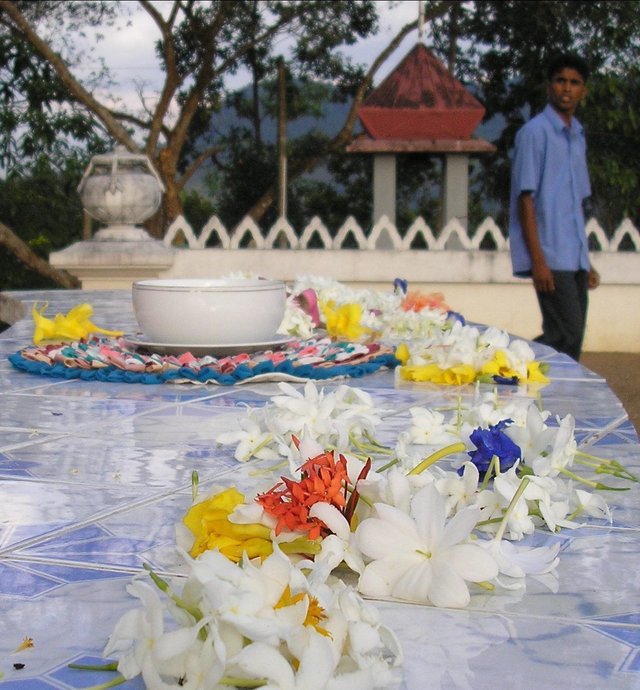
On the courtyard Sunil pours oil into the clay cups standing in endless rows on the stands. The children following him put a wick into each one of them. Ayanthi must adjust nearly all of the wicks, but she doesn’t say a word: let them learn it. They are allowed to light the oil lamps, and they might stick the incenses into the huge concrete urns filled with sand.
.jpg)
The Theravada Buddhism, spread in the island, is indeed based on the most ancient Pāli scriptures and put a great accent on ceremonies – and only ceremonies – as I remarked in a week moment of mine.
“You can’t see into our hearts! You don’t know, what we feel” – Nishantha, the family’s best friend objected.
“That is true” – I feel ashamed having made a superficial judgement again, and make a firm promise never to do it any more, for the two-thousandth times. However, it took quite a bit to see and learn the difference between being religious as I had known it, and that of Sri Lanka.
.jpg)
In Sri Lanka everything starts with prayer: the day, an excursion with the kindergarten, building a new house, or the gem-watching after the wash. In the morning the TV program starts with religious teachings: at first the Buddhist then the Hindu, after that Christian and finally the Muslim verses inspire people. Oil lamps are lit in every households and everyone prays offering the new day into God’s Grace. They recite all their troubles and leave them to Him: be as He wants them to be.
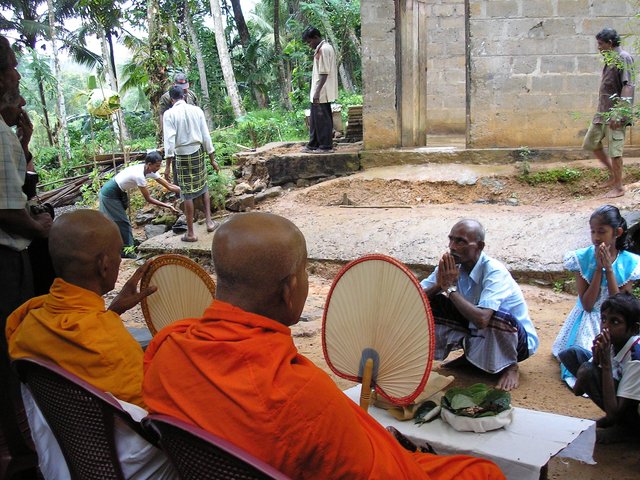
“If something doesn’t work out as we planned, we do not worry” – Nishantha explains. – We believe it is God’s will. We can do it tomorrow. Or the day after.
The more democratic, Western picture of our relationship with God, namely that we all are of divine origin not to mention co-creators, here would be shocking.
In the car, on our way to Saman Devali, I put my pleasure to words over I can meet again “my friend”, Saman Devio. Dismay follows my words. – Saman Devio is everybody’s friend – I try to save the situation, but no relieved sigh comes, although usually everyone tries to ease tense situations. Also, one of our neighbors frowns at my bad behavior not to prostrate in the temple. – You don’t worship Him – she says and she is right, after all.
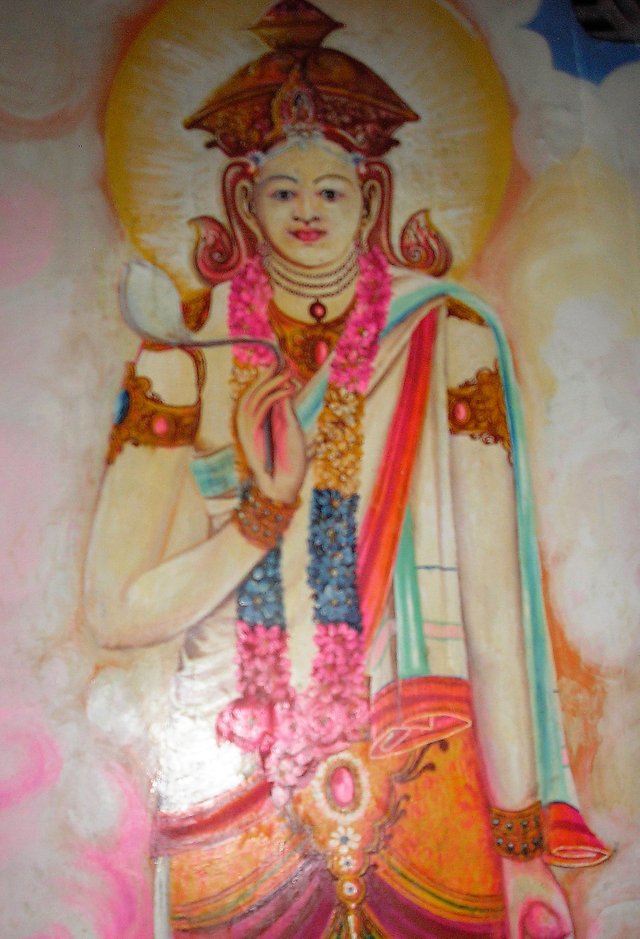
We don’t have that kind of respect and humbleness in us anymore. Fifteen years ago I wasn’t able to kiss Mother Theresa’s hand in India, and I feel uncomfortable now as my family members bend to the feet of the Buddhist monks. The Church and the monks are the most respected group in society – as an imprint of their Hindu origin and the cast-system with it. On the buses the seats behind the driver are reserved for them. As soon as one appears in the door anyone sitting there jumps up. In the restaurants they are served first: they enjoy priority everywhere.
Their religion gives them quite a lot to do. All family events are religious events as well, and monks must be invited. There are monks sitting at every first shovel of soil of every new house, at every name-giving ceremony, at every memorial (dane) and they accompany everyone on their last way. According to their faith serving a Buddhist monk means good points. The more monks the more good scores. One can get good points for pilgrimage and offerings, so everybody exercise those eagerly.
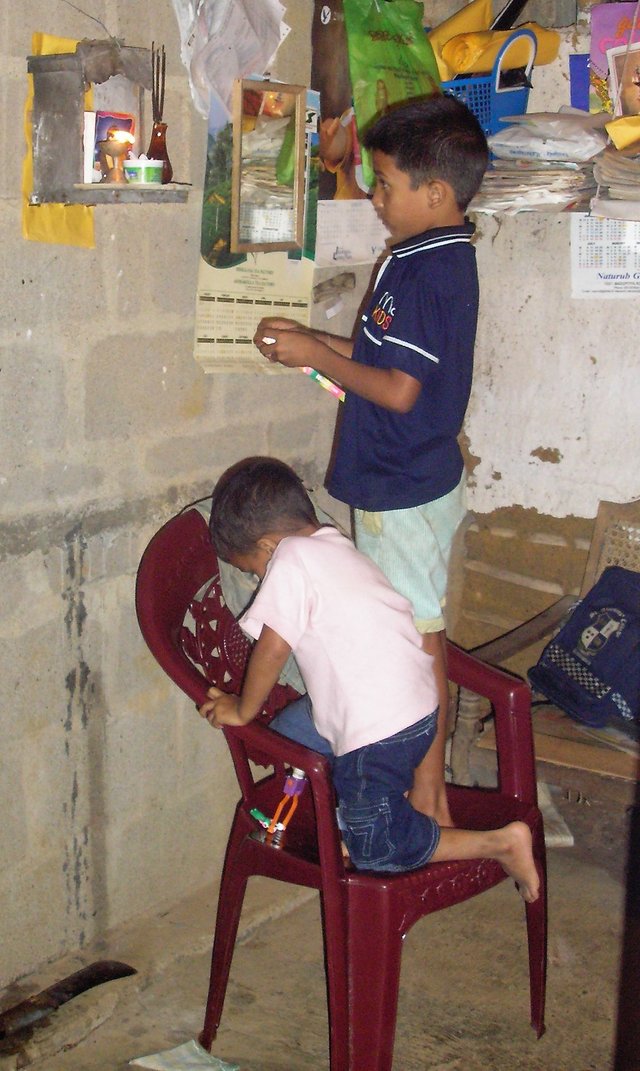
“Our religion prescribes five rules only” – the hotel owner explains on my first trip in the country. “Abstain from taking life, from taking what is not given, from sensuous misconduct, from false speech and intoxicants”.
Of course, they break the rules sometime as well, yet, they are in a kind of constant intimate relation with the Transcendence. Which is invisible, indeed. But you might notice it from that silent introversion on the children’s faces as they stick incenses to the concrete urns, or from the owe on the women’s faces listening the holy verses, but from most of all the cheerfulness that give the keynote in their life with. For what else joy would be than hope, faith and good conscience.
.jpg)